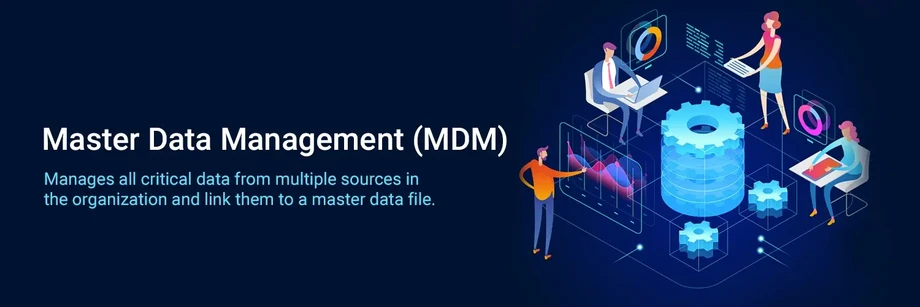Master Data Management (MDM) is a comprehensive framework that enables organizations to manage their critical business data in a consistent, accurate, and centralized manner. It involves the processes, policies, and tools used to define, govern, and manage master data—the essential data that organizations rely on to operate their business. This data includes key entities such as customers, products, suppliers, and employees, as well as other critical business information like financial data and organizational structures.
The primary goal of MDM is to create a single, reliable source of truth for these key data entities, ensuring that they are consistent and accurate across the entire organization. This is crucial because, in most companies, data is often spread across multiple systems and departments, leading to discrepancies, duplications, and errors. Without proper management, these issues can result in inefficiencies, poor decision-making, and compliance risks.
MDM encompasses several key components:
-
Data Governance: This involves establishing policies, standards, and procedures for managing data. It ensures that data is collected, stored, and used in a way that meets business requirements and complies with regulatory standards.
-
Data Integration: MDM solutions integrate data from various sources and systems across the organization. This integration helps consolidate data into a unified view, eliminating silos and ensuring that everyone has access to the same, consistent information.
-
Data Quality Management: MDM includes processes for ensuring the quality of data. This involves cleaning and validating data to remove duplicates, correct inaccuracies, and standardize information. High-quality data is essential for reliable business insights and decision-making.
-
Data Stewardship: This refers to the role of individuals or teams responsible for managing and maintaining data quality. Data stewards oversee the implementation of data governance policies and ensure that data is accurate and consistent.
-
Master Data Modeling: MDM involves defining the data model for master data entities. This includes determining how these entities are related to each other and ensuring that data relationships are accurately represented.
MDM is particularly valuable in industries where accurate and consistent data is critical, such as healthcare, finance, retail, and manufacturing. For example, in healthcare, MDM helps maintain accurate patient records, improving care quality and operational efficiency. In retail, it ensures that product information is consistent across all channels, enhancing the customer experience.
In summary, MDM is a vital practice that helps organizations manage their essential data assets effectively. By establishing a single source of truth, ensuring data quality, and providing consistent information across the enterprise, MDM enables businesses to make better decisions, improve efficiency, and comply with regulations. Whether for operational efficiency, customer satisfaction, or strategic planning, MDM is a foundational element for any data-driven organization.
Learn more at: https://www.piloggroup.com/master-data-record-manager.php

